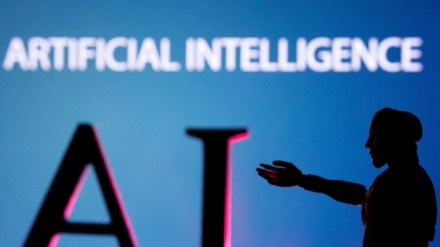By Siddharth Srivastava
The United Kingdom Supreme Court recently delivered a judgement holding that a patent cannot be granted for inventions generated by Artificial Intelligence (‘AI’). The judgement was delivered in the case titled Thaler v Comptroller-General of Patents, Designs and Trademarks [2023] UKSC 49, in which the appellant Stephen Thaler sought approval of two patents in the United Kingdom claiming that his ‘creativity machine’ named DABUS was responsible for these inventions.
However, the UK Intellectual Property Office (UKIPO) declined the patent registration, asserting that the inventor must be a human or a legal entity, not a machine. Thaler appealed this decision to the UK Supreme Court, but the appeal was unanimously dismissed, thereby affirming that an inventor must be a natural person. A similar view has been recently adopted in India and United States of America as well.
In 2018, Thaler filed applications for the grant of a patent for an alleged invention for a new kind of food and beverage container and for a light beacon for attracting attention in an emergency situation. Thaler made the applications under the United Kingdom Patents Act, 1977. Neither application designated a human inventor, and no separate document designating a human inventor was ever filed. Instead, it was stated that Thaler was not an inventor of the inventions described in the applications and that the inventions were created by the Artificial Intelligence of a machine called DABUS. He submitted that he had acquired the right to the grant of the patents for which he had applied because he owned that machine.
The United Kingdom Supreme Court first dealt with the question of determining the scope of the term ‘Inventor’ in the Patents Act, 1977 and whether it extends to an Artificial Intelligence machine such as DABUS. The Court held that the structure and content of Sections 7 and 13 of the Act, on their own and in the context of the Act as a whole, permit only one interpretation: an inventor within the meaning of the Act must be a natural person, and DABUS is not a person at all, let alone a natural person. This interpretation affirmed the view taken by Lord Hoffman in Rhone-Poulenc Rorer International Holdings Inc v Yeda Research and Development Co Ltd [2007] UKHL 43.
The next question addressed by the Court was whether Thaler was nevertheless entitled to apply for and obtain a patent in respect of any technical advancement made by DABUS as described in the patent applications. But this contention of Thaler failed as well considering that the application failed to pass the muster of Section 7(2)(a) according to which, the inventor must be a person and an Artificial Intelligence machine is not a person. For all these reasons, the appeal was dismissed by the Supreme Court.
Interestingly, these applications by Thaler are part of a larger project involving parallel applications to patent offices around the world. Thaler and his collaborators seek to establish that AI systems can make inventions and that the owners of such systems can apply for and secure the grant of patents for those inventions. Earlier in 2023, Thaler lost a similar bid in the United States, where the Court declined to hear a challenge to the US Patent and Trademark Office’s refusal to issue patents for inventions created by his AI machine.
Even in India, objections were recently raised by the Controller General of Patents against a patent application filed by Thaler for DABUS. The examination report pointed out concerns under Sections 2 and 6 of the Patents Act, 1970. The Controller General stated that the application failed to meet the formal and technical requirements outlined in these sections because DABUS is not recognised as a person. Sections 2 and 6 of the Indian Patent Act, of 1970, outline the criteria for acknowledging an inventor and the eligible applicant in the Indian context.
According to Section 2(1)(s) of the Act, the person applying for a patent can be a ‘natural person’ or any ‘Government’ organisation. Interestingly, the term ‘person’ doesn’t solely refer to a natural person or government entity; it also includes other entities that can legitimately claim to be the true and original inventor of the invention. However, the interpretation taken by Courts is narrow, emphasising that only a natural person actively contributing their skills and knowledge to the innovation has the legal standing to claim inventorship.
Hence, the courts in major jurisdictions across the world and their respective patent offices have uniformly taken the view that patents cannot be granted on inventions made by artificial intelligence.
(The author is Counsel practising before the Delhi High Court. Views expressed are personal.)
